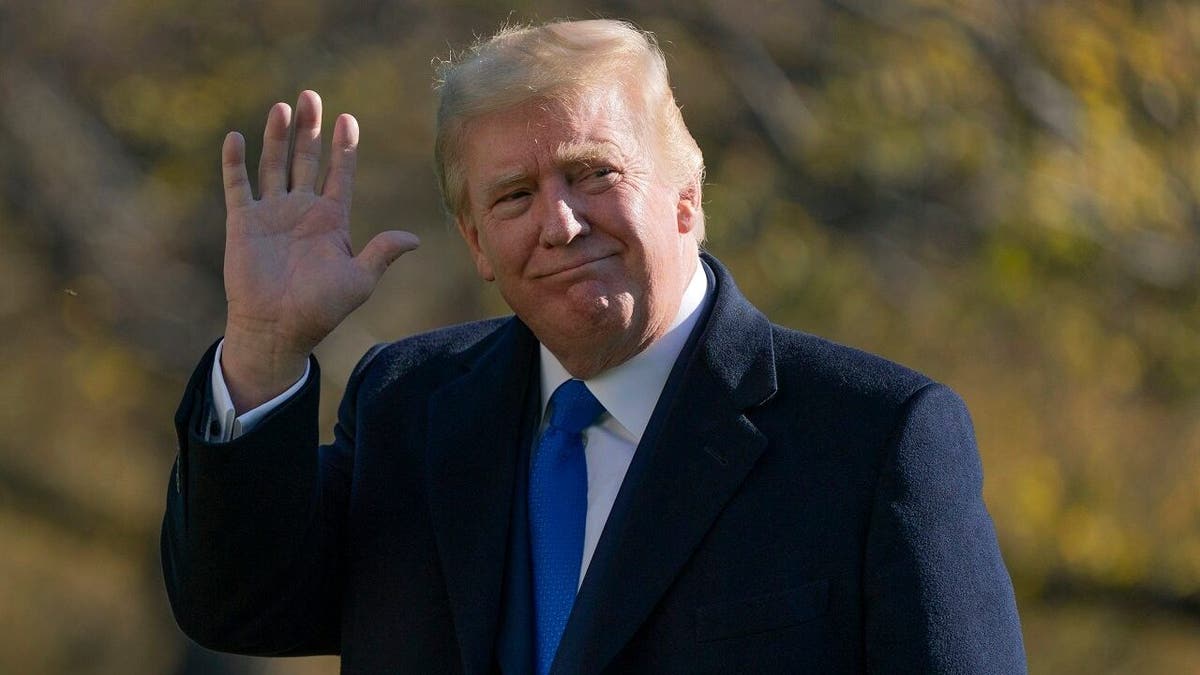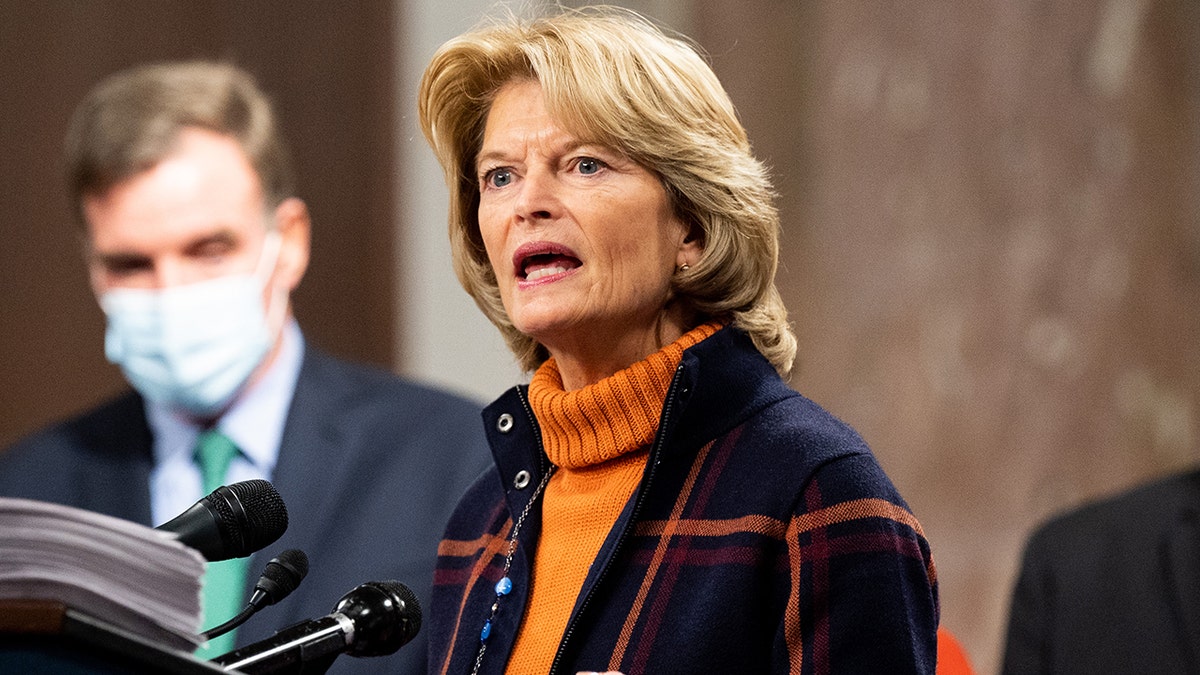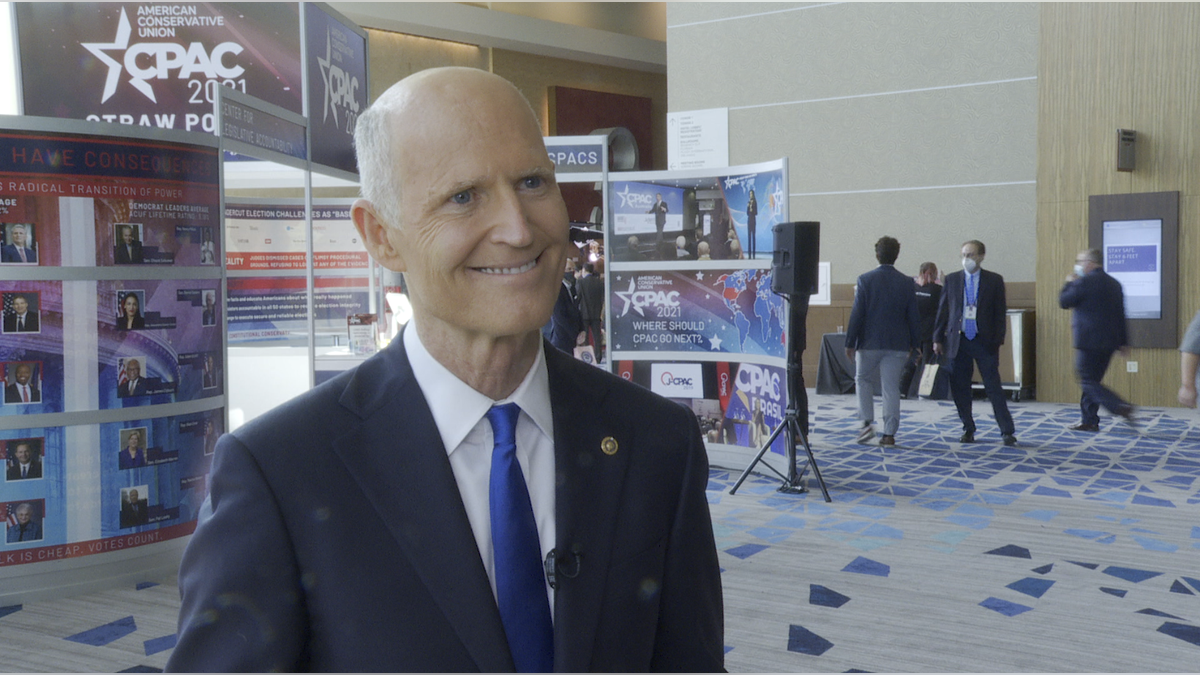Former President Donald Trump is trying to squeeze money away from three of the most integral fundraising and electoral organizations in Republican politics as he aims to ensure Republican donors' money doesn't go to candidates who are disloyal to him.
The former president over the weekend sent "cease-and-desist" letters to the National Republican Senatorial Committee (NRSC), National Republican Congressional Committee (NRCC) and the Republican National Committee (RNC) demanding that they stop using his name and likeness to raise money, Politico first reported.
The RNC was the first to publicly respond on Monday. RNC Chief Counsel J. Justin Riemer said in a letter to the counsel for Trump's "Save America PAC" that it will not stop using Trump in its fundraising pitches.
"Like President Trump, the NRC remains focused on electing Republican candidates and advancing conservative policies," the letter said. "The RNC, of course, has every right to refer to public figures as it engages in core, First Amendment political speech, and it will continue to do so in pursuit of these common goals."

President Donald Trump walks on the South Lawn of the White House in Washington, Sunday, Nov. 29, 2020, after stepping off Marine One. Trump was returning from Camp David. (AP Photo/Patrick Semansky)
TRUMP LIKELY A FACTOR IN FLURRY OF SENATE GOP RETIREMENTS
Then mere hours later, Trump sent an email to his supporters telling them to ensure that their political donations go to the political action committee (PAC) directly controlled by him instead of organizations that may support Republicans who are critical of the former president.
"No more money for RINOS. They do nothing but hurt the Republican Party and our great voting base—they will never lead us to Greatness," Trump said, telling donors to give their money to his Save America PAC. "We will bring it all back stronger than ever before."
This was not the first time Trump has told his followers that they should starve traditional Republican organizations of money. During his speech at the Conservative Political Action Conference (CPAC), he said "there's only one way to contribute to our efforts to elect America First Republican conservatives and in turn to Make America Great Again, and that's through" his Save America PAC.
The NRSC did not comment on the cease and desist letter from Trump's legal team. The NRCC did not immediately respond to requests for comment for this story.
Trump's attacks on the groups, including the NRSC, come as NRSC Chairman Sen. Rick Scott, R-Fla., continues to insist that there is no civil war within the Republican Party. Scott is in an especially awkward position of being committed to defending incumbent senators in primaries through his job leading the NRSC even as Trump has promised to support primary challenges against Republican incumbents.

Sen. Lisa Murkowski (R-Alaska) speaks at a press conference to introduce a bipartisan and bicameral COVID relief bill on Dec. 14, 2020, in Washington, D.C. (Michael Brochstein/Sipa USA) (Reuters)
Trump most recently said he plans to campaign for an opponent to Sen. Lisa Murkowski, R-Alaska, who was one of the seven GOP senators to vote to convict him at his impeachment trial last month.
TRUMP SAYS HE'LL WORK TO UNSEAT ALASKA'S MURKOWSKI, CALLING HER 'DISLOYAL'
"I will not be endorsing, under any circumstances, the failed candidate from the great State of Alaska, Lisa Murkowski," Trump said in a statement. "She represents her state badly and her country even worse. I do not know where other people will be next year, but I know where I will be – in Alaska campaigning against a disloyal and very bad Senator."
Murkowski is not the only Republican Trump has gone after in recent months -- he's also directed his ire at Reps. Liz Cheney, R-Wyo., and Adam Kinzinger, R-Ill., as well as Senate Minority Leader Mitch McConnell, R-Ky. Donald Trump Jr., late last month in an interview with Fox News, slammed the idea of "blindly" supporting Republican incumbents and said there are "plenty" of Republican senators against who he and the former president would be willing to support primary challenges.
The NRCC, meanwhile, has a policy of not getting involved in primaries.
Scott had previously said in a memo to GOP voters, activists and officials that "The Republican Civil War is now canceled."
"Some of you voted for President Trump enthusiastically, some with reservations, and some with great reluctance," Scott also said in the memo. "It doesn’t matter. We got 74 million votes, and we can easily add to our numbers if we work together."

Sen. Rick Scott, R-Fla., told Fox News at CPAC 2021 that he believes Republicans can flip Democrat-controlled Senate seats in at least 4 states in 2022, as he continued to say there is no civil war in the GOP.
But the internal party battles being stoked by Trump threaten to handicap the Republican Party in 2022 if the three groups most responsible for getting Republicans elected to the federal legislature are starved for cash.
Under Trump's presidency, Republicans lost control of both the House and the Senate. But they are in a 50-50 tie in the Senate and can take control of the body by netting just one seat in 2022. That is the job of Scott and the NRSC.
And Republicans significantly outperformed expectations in the House in 2020, with many crediting recruitment and campaign efforts by House GOP leadership and the NRCC for putting the party on the edge of a House majority.
CLICK HERE TO GET THE FOX NEWS APP
These groups, however, are unlikely to publicly rebuke Trump over his efforts to undercut them, as the GOP base is still largely in thrall with the former president. This was underscored by the deferential tone of the RNC's response to Trump's cease-and-desist.
"The RNC is grateful for the past and continued support President Trump has given to the committee and it looks forward to working with him to elect Republicans across the country," the letter said. "If you have any questions or concerns, please do not hesitate to call."
Meanwhile, five Republican senators, most recently Sen. Roy Blunt, R-Mo., have already announced that they will retire next year. According to longtime Republican strategist Colin Reed, that is due to "a growing recognition this is not the Republican Party of days of yore, still very much the party of Trump."
Fox News' Peter Doocy and Paul Steinhauser contributed to this report.






